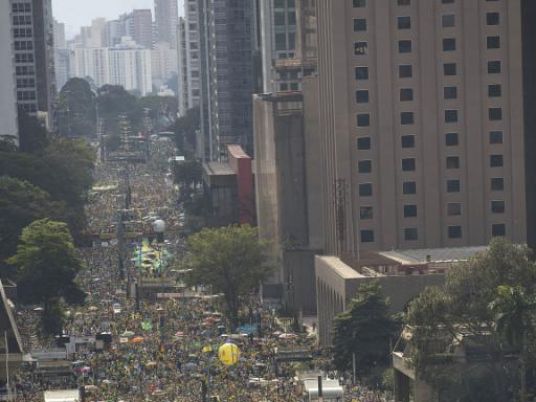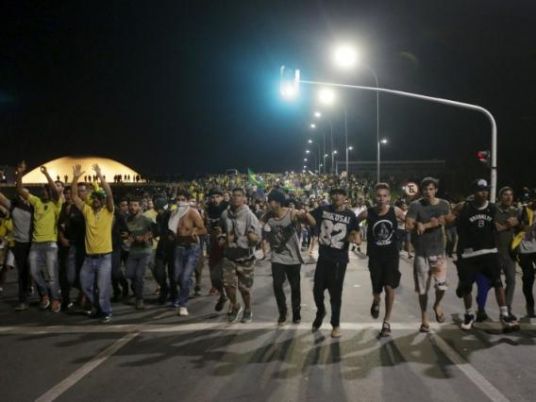
Brazil's Supreme Court on Friday said that federal police have asked for its permission to question former president Luiz Inacio Lula da Silva for possible involvement in the kickback scheme that has engulfed state-owned oil company Petrobras.
The court's press office confirmed the request, which was first reported by weekly newsmagazine Epoca on its website on Friday. The court received the request on Wednesday. It has not indicated when it would rule on the police request to question Silva.
According to parts of the request published by the magazine, police believe Silva "may have obtained advantages for himself, his party … and the government while he was president by maintaining a base of political support sustained by illicit business" at Petrobras.
Silva is a two-term president who left office in 2011 with an approval rating of 86 percent and who has made it clear he's willing to run again for the presidency in 2018 for the ruling Workers' Party, known as the PT, he helped found.
Ratcheting up investigation
If the court permits the questioning, it dramatically ratchets up the investigation that has already seen high-level executives of Petrobras and Brazil's massive construction and engineering firms jailed.
"The fact that they want to question him shows they have something pretty solid against him up their sleeves," said David Fleischer, a professor emeritus of political science at the University of Brasilia. "This if the first chapter of the end of Lula and by extension the end of Dilma and the considerable weakening of the PT."
Prosecutors allege over $2 billion was paid in bribes by businessmen to obtain Petrobras contracts, projects that then subsequently ballooned in costs.
Additionally, more than 50 federal deputies, senators and other top political figures are under investigation or have been charged.
As yet, no accusations have been brought against President Dilma Rousseff, Silva's hand-chosen successor, who served as the chairwoman of the Petrobras board for several years as the scheme played out. She and Silva have repeatedly denied any wrongdoing, and Rousseff has encouraged investigators to carry out their inquiry aggressively and "hurt whoever must be hurt."
The Federal Police in Brasilia and the Sao Paulo-based Lula Institute both said they had no comment on the request. On a trip in neighboring Argentina, Silva told reporters that he had not been notified of the police request to question him.
Under Brazilian law, all federal politicians and some at other levels can only be investigated if the Supreme Court approves the inquiry, and eventually only be charged by the top court and tried in it.
While Silva is no longer a sitting politician, legal analysts say that such a request would need to go to the Supreme Court if the questioning of the former president is linked to an ongoing investigation into an active politician.
Charges filed
Last week, prosecutors filed corruption, racketeering and money laundering charges in the case against Silva's former chief of staff, Jose Dirceu.
"The police request is another major sign that the Dilma government and Lula are increasingly powerless to reverse this situation in their favor," said Thiago de Aragao, of the Brasilia-based Arko Advice political consulting firm. "There is so much ammunition against them, that every time they make an effort to improve their situation, some of it emerges and it again puts them on the defensive."
Separately from the Petrobras case, in July prosecutors said they had enough evidence to warrant a full probe of Silva's alleged overseas lobbying for Brazil's biggest builder, Odebrecht, whose CEO is now in jail because of his alleged involvement in the Petrobras case.
Prosecutors are looking into allegations of influence peddling and that Silva's efforts helped Odebrecht obtain contracts to build infrastructure projects in Panama and Venezuela, as well as to obtain contracts in several other countries, crimes under Brazilian law.
They are trying to determine if Silva swayed foreign leaders to award inflated billion-dollar contracts to Odebrecht, and also if he pushed Brazil's state development bank to give the company well over $1 billion in low-interest loans since 2011, after he left office.

